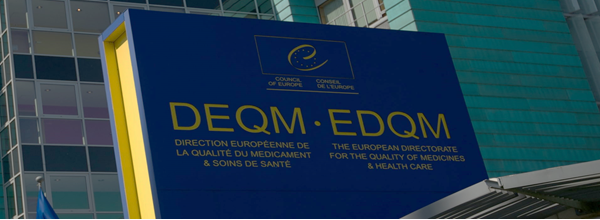Interruptions to the inspection programme of the European Directorate for the Quality of Medicines & HealthCare (EDQM) due to travel restrictions – made necessary by the COVID-19 pandemic – led to the creation of a system of Real-Time Remote Inspections (RTEMIS). This pilot project combines a live video feed, linking inspectors and manufacturing sites of active pharmaceutical ingredients (APIs), and the review of documentary sources, with the objective of monitoring compliance with both Good Manufacturing Practice (GMP) and applications for Certificates of suitability to the monographs of the European Pharmacopoeia (CEPs) in manufacturing sites.
The EDQM inspection programme is an integral part of the CEP procedure and is therefore essential to ensuring the availability of good quality medicines. Because the vast majority of inspections takes place in India and China, the EDQM had to find new ways to continue the GMP evaluation of manufacturing sites, complementing the traditional combination of on-site inspections and documentation-based assessment of companies.
Technical and administrative solutions meeting strict requirements in terms of information confidentiality and security, inspector safety and of course the effectiveness of the site inspection procedure itself were first examined in detail during a feasibility study, then put into practice in a pilot phase with several manufacturing sites in India.
These sites, selected on the basis of their GMP-compliance history and a risk assessment, were invited to participate on a voluntary basis.
The objectives of these initial inspections were achieved: a number of minor and major deficiencies were observed and the Corrective and Preventative Action Plans the companies put in place led to a satisfactory degree in GMP conformity on the remotely inspected sites.
Circumstances and safeguards appropriate for real-time remote inspections are being further examined, but the EDQM considers that real-time remote inspections could be fully integrated into its inspection programme in the future. While this approach cannot replace on-site inspections in terms of value and effectiveness, it does enable inspectors to assess GMP-compliance for companies already having been inspected by the EDQM. Real-time remote inspections could therefore become a third pillar for the supervision of GMP compliance of API manufacturers registered in the EDQM’s CEP scheme.
For more information, see the EDQM’s dedicated web page: “EDQM and real-time remote GMP inspections of API manufacturers during the COVID-19 pandemic: innovation overcoming adversity
The economic impact of biosimilars on the Australian health care system is now clearer, with data revealing their role in reducing market expenditure and driving price competition.
The Chinese Golden Week impacts Ocean Freight Shippers for two main reasons:
Donald Trump’s tariffs of 50% have come into force on most US imports from India. India’s giant generic pharmaceuticals sector and its electronics and petroleum products are exempt from the tariffs. Aluminium, steel and copper remain at 25%, but job-heavy sectors such as textiles, jewellery, seafood and leather are squarely in the line of fire.
The European Chemicals Agency (ECHA) has published the updated proposal to restrict per- and polyfluoroalkyl substances (PFAS) under the EU’s chemicals regulation, REACH. The update has been prepared by the authorities from Denmark, Germany, the Netherlands, Norway and Sweden, who submitted the initial proposal in January 2023.
Most chemicals exported from the 27 member countries of the European Union into the US will be subject to a 15% tariff on top of their selling prices under an agreement signed on July 27 between the US and the European Commission.
We’re thrilled to announce a new strategic alliance between ExSyn, Exim-Indis and simABs, a leading EU-based biologics manufacturer known for its patented continuous flow technology in antibody production.
The global trade landscape is undergoing significant changes following the announcement of new reciprocal tariffs by the United States government. Recent developments indicate significant shifts in global trade dynamics, with key policy adjustments, ongoing negotiations, and evolving logistics patterns. Below is a summary of the latest developments.
In January 2025, the US FDA published a draft regulatory guidance entitled “The Considerations for Use of Artificial Intelligence to Support Regulatory Decision-Making for Drug and Biological Products”.
The adoption of artificial intelligence (AI) and large language models (LLMs) is rapidly reshaping clinical research and drug development.
